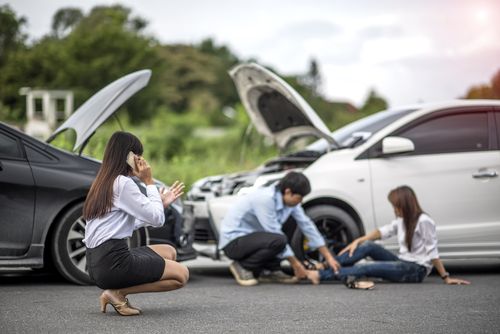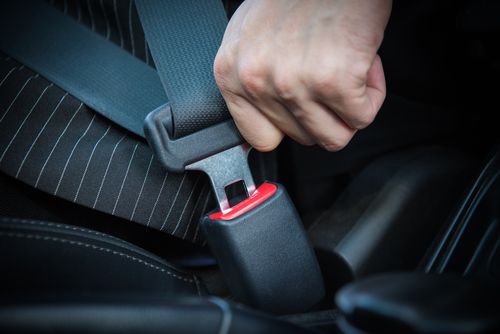If you suffered injuries in a recent crash, you likely have questions about how to get paid after a car accident. The answer will depend on the case’s facts, applicable laws, and other details. In many cases, victims hold the at-fault driver accountable to recover compensation for their medical bills, lost income, and other losses. This is possible through an insurance claim or lawsuit.
If you were hurt in a collision, working with a crash attorney familiar with the laws in your state is a good idea. Their legal team can assess your options and explain your next steps in seeking fair compensation. Your car accident lawyer can manage the entire claims process, letting you fully focus on healing.
There Are Generally Two Ways for Victims to Get Paid After a Crash

Getting paid for your expenses after a crash can prove difficult. You likely need to prove what happened, including how the at-fault driver caused the crash. You must also document your recoverable damages.
Then, there are two options for seeking compensation:
- Filing an insurance claim
- Filing a personal injury lawsuit in civil court
While most car crash victims have these two options, attorneys often use them concurrently. When they begin both tracks toward a financial recovery, it offers the chance to continue to trial if they cannot get a fair settlement from the insurer.
Keep reading to learn more about these two options.
Insurance Settlements Are Usually How Victims Get Paid After Car Accidents
Insurance claims aim to compensate injured claimants through settlement agreements. While insurers often make an offer quickly following a crash, accepting it is rarely a good idea. You need to know how much the case might be worth to ensure the offer is fair. This is not possible until you understand your recoverable damages. This usually only occurs after your injuries heal or experts weigh in on your future care costs.
Insurance negotiations often continue throughout the case, even when there is a looming civil trial. In fact, settlements in the weeks and days before a trial are common. For this reason, many courts require mediation before putting a case on the docket.
You Could Recover Damages Through a Court Award
If the liable insurer doesn’t offer fair compensation, the injured party may elect to sue and take it to trial. Both the plaintiff and the defendant’s legal team work to choose jurors and present their arguments. The jurors decide on what happened and who is liable. Then, they could award compensation to the plaintiff.
Compared to insurance settlements, court awards are relatively rare. However, there are reasons why attorneys push some cases to trial. If there is a reason why a judge should hear your case, your lawyer can explain their approach and ensure you understand what to expect.
What Are My Options for Seeking Compensation?
Most crash payouts come from fault-based cases. These cases require the victim to prove the at-fault party caused the crash and their injuries.
This is not always easy. In fact, it often requires skills and know-how only found in those who frequently work with traffic collision cases. This is one reason why many crash victims opt to work with personal injury law firms. By partnering with attorneys, victims can focus on their healing, not their legal cases.
Depending on Where You Live, You Could File a No-Fault Claim
Some states require drivers to carry no-fault auto insurance policies, often called personal injury protection (PIP) coverage. PIP policies allow the policyholder to recover basic expenses and losses without showing who caused the accident.
PIP policies generally only cover basic damages, including medical bills, a portion of lost income, and some limited out-of-pocket expenses. They do not pay for pain and suffering and other non-economic damages.
Most states have laws about when a victim pursues a fault-based case instead. For example, some states allow them to sue when their medical bills exceed the coverage provided by their PIP policy. Others allow claimants to sue based on the severity of their injuries. An attorney can help you understand your rights if you live in a state with no-fault insurance requirements.
How Do I Get Paid After a Hit and Run Accident?
Sometimes, the at-fault driver leaves the crash scene before the police arrive. If the victim and witnesses cannot identify them, and the police do not determine all the parties involved, seeking damages through a fault-based claim can get complicated. However, there is another option. Many drivers carry uninsured motorist coverage.
Laws vary from state to state. However, many states require this policy. Others require drivers to opt out in writing. This leads to many people having the coverage even when it is optional.
To recover compensation through your uninsured motorist policy, you must show that an uninsured or unidentified motorist caused your crash. Then, you must document your injuries, expenses, and losses. This allows you to negotiate with the insurance company with a good idea of how much your case might be worth.
How Can I Show Fault and Recover Damages?
While some victims recover compensation through no-fault claims, most need to show what happened and who is liable to recover compensation.
Collisions generally occur because of negligence, which involves:
- A duty of care
- Breach of duty
- Causation
- Harm
In a crash case, the duty of care generally comes from traffic laws. A traffic law establishes a duty of care for the driver. For example, traffic laws require drivers to stop at a red light. Failing to do so would be a breach of that duty. Running a red light could easily cause a collision resulting in significant injuries.
You Need Evidence to Establish Another Party’s Negligence
The investigation’s goal is to demonstrate the four elements of negligence. Yet, to support a claim or lawsuit, there must be enough evidence to show what happened and who is at fault in the crash.
Each case is different, but supporting evidence in car accident cases generally includes:
- The crash report filed by responding police officers
- Eyewitness statements and interviews
- Accident scene surveys
- Accident reconstruction data
- Pictures and videos from the accident scene
- Videos of the accident, when available
- Relevant medical records
- Documentation of damages, including bills, receipts, and other paperwork
Many modern vehicles come equipped with what are commonly called black boxes. These mechanisms record data as they relate to collisions. For instance, a black box can record the force of impact in a collision, along with how fast the vehicle traveled. This could offer a host of information when asserting your case against the at-fault party.
Successfully Proving Negligence Could Yield These Damages
As a part of the investigation, the victim must also document their damages. Your damages can include any expense related to the accident, even those without inherent monetary values.
Compensable losses in your case may comprise:
- Medical bills, current and future
- Related expenses, including ongoing and future care costs
- Income losses while you’re out of work
- Loss of future income (if your injuries will affect your long-term earning power)
- Miscellaneous related costs
- Pain and suffering
- Other non-economic damages, such as disability
Determining what a fair settlement offer might look like requires documenting the economic expenses and putting an appropriate value on non-economic costs such as pain and suffering. This is difficult unless you have experience handling this process. Calculating possible future expenses often requires working with experts, including medical care professionals and economists.
How Can an Attorney Help With My Collision Case?
When you choose to work with a lawyer on your collision case, you have someone fighting for your best interests and handling all aspects. In the meantime, you can focus on healing and returning to your previous work and activities, if possible. Your lawyer takes care of everything.
Your attorney knows how to get you paid after a car accident. They understand the applicable laws and how they apply to your case. They also know how to navigate the process, including filing insurance claims and lawsuits.
Advancing your case requires your lawyer to:
- Manage all communications with the involved insurance companies
- Ensure you meet all applicable deadlines when possible
- Represent you to all involved parties, including during trial
The law firm representing you can make the necessary decisions about navigating your case and developing an approach that best suits the circumstances.
An Accident Lawyer Knows How to Investigate Your Case
Your lawyer is more than an advocate, they’re also an investigator.
Investigating car accident cases requires:
- A knowledge of the evidence available and how to get it
- A large time commitment
- Money for paying consultants, obtaining records, and more
- A network of experts who provide specific assistance with showing what happened
Your attorney can manage all aspects of the investigation, including identifying evidence, gathering it, and analyzing it. While this takes a lot of weight from any victim’s shoulders, it is key for those with lasting injuries or who require future care and support. Your legal team should know how to document the possible ongoing and future care costs necessary for your treatment and care.
An Attorney Serves as Your Legal Guide
Your lawyer will also prepare you for what to expect during this process. This is especially important during a lawsuit when you might have to make court appearances, give a deposition, or take other steps that require you to step outside your comfort zone. Your attorney should be a source of support and guidance every step of the way.
Your legal team aims to hold the liable party accountable and recover fair compensation based on your case’s facts. They do this by representing your best interests and using their knowledge, experience, resources, and more to navigate the processes necessary. You do not have to fight for compensation on your own. Working with an attorney could offer the support you need during this challenging time.
Each State Sets a Statute of Limitations on Collision Lawsuits
Crash victims only have a limited time to file personal injury lawsuits. These deadlines (known as statutes of limitations), vary widely based on state laws and cases’ circumstances.
Each state generally gives victims one to four years to sue. For example, in New York, car accident victims generally have three years to begin an injury lawsuit. There are exceptions that could alter this deadline, though. Some people have less time, while others might have more. Additionally, this time to act may be different for wrongful death suits, depending on the state. To use New York as an example again, anyone pursuing a wrongful death lawsuit in this state only has two years to file these types of cases.
These deadlines depend greatly on the state where the crash occurred and the circumstances of the collision. Sometimes, such as when a municipal employee causes a crash while on the job, the time available could be considerably shorter than usual. This is one reason why acting quickly to contact an attorney could be in a crash victim’s best interests.
Contact a Collision Firm About Your Next Steps as Soon as Possible
If you suffered injuries in a crash, you should consider contacting an attorney as soon as your injuries allow. This ensures you meet all applicable deadlines, give the lawyer time to develop a strong case, and have access to as much evidence to support your claim as possible. Evidence sometimes disappears quickly after a crash.
Most personal injury law firms in Long Island provide free initial consultations for injured parties and their families. There is no reason to put off this free case review. The firm will have a team member assess your case and discuss your options with you today. There is no obligation to hire an attorney unless you choose to do so.








